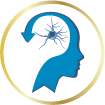The Power of Early Childhood Education Routines
The power of early childhood education routines is undeniable. Routines provide children with structure, consistency, and a sense of security. They also give children the opportunity to develop important skills that will help them succeed in life. From learning how to take turns to developing self-discipline, routines can help children learn how to be independent and responsible.
Routines are especially important for young children. Children need structure and routine to help them feel secure and to help them learn and grow. A consistent routine gives children a sense of predictability and control, which can help reduce stress and anxiety. Routines also provide children with the opportunity to practice and master new skills, such as self-care, problem-solving, and communication.
One of the most important benefits of establishing routines in early childhood is that it helps children learn how to be independent and responsible. Routines help children learn how to take turns, follow directions, and manage their time. They also help children develop self-discipline and the ability to plan and organize. Routines can also help children develop a sense of responsibility by giving them clear expectations and rules to follow.
Routines can also help children learn important life skills. Through routines, children learn how to be organized, manage their emotions, and interact with others. They also learn how to take responsibility for their own actions and develop a sense of self-esteem. Routines also provide opportunities for children to practice problem-solving and communication skills.
Routines are also important for helping children develop a healthy relationship with technology. By establishing a routine for when children can use technology, such as computers, tablets, and phones, parents can help children learn how to use technology responsibly. Parents can also use routines to help children learn how to manage their screen time and to ensure that they are using technology safely and appropriately.
Routines are also an important part of learning. Establishing routines can help children learn how to focus and pay attention, which is essential for learning and academic success. Routines also provide children with the opportunity to practice and master new skills. By providing children with structure and consistency, routines can help children develop a love of learning.
Routines are an essential part of early childhood education. They provide children with structure, consistency, and a sense of security. They also give children the opportunity to develop important skills that will help them succeed in life. From learning how to take turns to developing self-discipline, routines can help children learn how to be independent and responsible.
Advantages of Routines
- Provide children with structure and consistency
- Help children develop self-discipline
- Teach children how to be independent and responsible
- Help children learn important life skills
- Provide children with the opportunity to practice and master new skills
- Help children develop a healthy relationship with technology
- Help children learn how to focus and pay attention
- Provide children with the opportunity to develop a love of learning
Conclusion
The power of early childhood education routines is undeniable. Routines provide children with structure, consistency, and a sense of security. They also give children the opportunity to develop important skills that will help them succeed in life. From learning how to take turns to developing self-discipline, routines can help children learn how to be independent and responsible.












Leave a comment